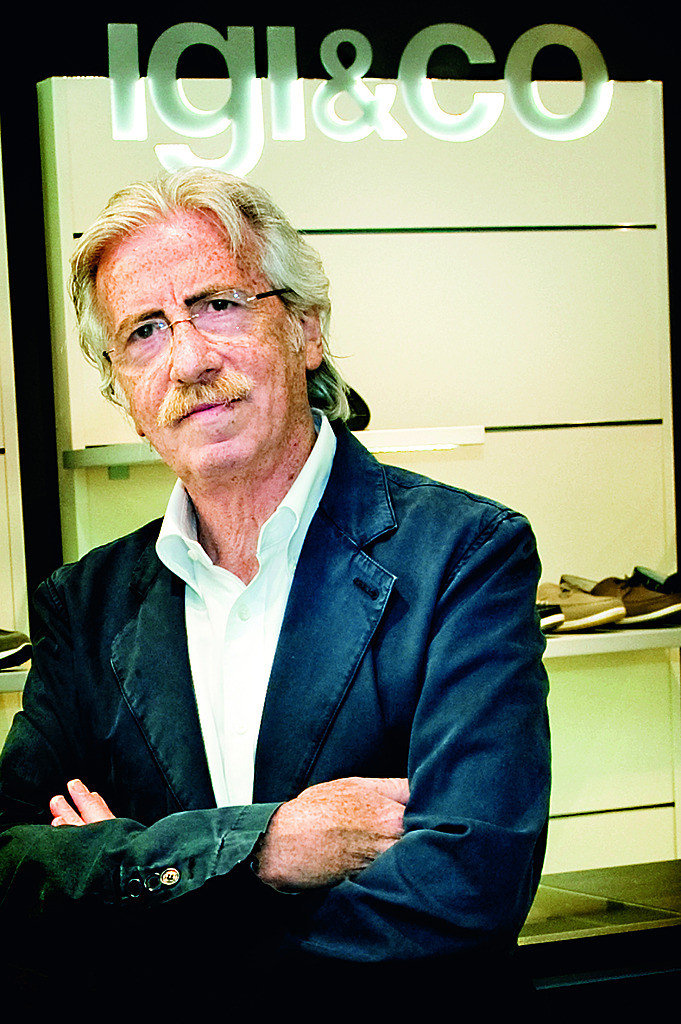What has this period of lockdown meant for a leading and well-appointed reality like yours, which works both in terms of production and distribution?
Our first concern was that of safeguarding the health of our employees and of their families, with a feeling of concern also for all of our customers, while following without delay the decrees of the government. I could never have imagined I would have had to face an emergency like this: in fifty years of our company’s history, it was the first time things came to a halt, and looking beyond the important economic losses and enormous organisational problems, we found ourselves in a situation that was completely new to us, caused by force majeure, and initially dominated by a sense of helplessness and uncertainty.
What strategies did you adopt to reply to the new needs connected to the recovery of business after the Covid emergency?
In terms of production, we were forced to inevitably stop, while initially deciding to use the period of closing to clean and adapt the work areas to the new parameters of hygiene-sanitary standards, in order to guarantee the correct distance between personnel and the correct availability of company services to all employees, once we opened back up. At the same time, we moved up the timeline of our maintenance operations in the plants, making some technical improvements on our production lines. In terms of distribution, we immediately flanked our customers, supporting them in this difficult moment through a specific commercial strategy aimed not only at economically helping them out, but also and above all elaborating new ideas and prospects for our shared future. Instead of closing ourselves in with defence strategies and trying to limit damages, we invested in an important ad campaign that included our main brands Primigi, Igi&co and Enval Soft, with the aim of involving in the same all the actors of the distribution process, including the company, stores, franchises and consumers. With the support of more or less everyone, we decided to work and sow the earth, even during a moment of seemingly greater sterility, forcing ourselves to look to a future filled with possibilities. The effort was enormous, from every point of view, but clientele reacted in an extremely positive way, once again reinforcing the strong ties between us.
What are the greatest difficulties you find yourselves facing in this moment, but also which opportunities do you believe this situation has created?
The greatest difficulties without a doubt are operative in nature: new production shifts, new regulations to follow in work areas and a new way of approaching and interacting with consumers in stores. As with all moments of great collective difficulty, also this pandemic will generate new opportunities for those who know how to seize them: what is needed are good ideas, a desire to be active and the willingness to invest in what is new and makes progress.
Do you believe the period we are living in has changed the purchasing habits of consumers and the products they wish to buy?
Most certainly. Nothing will be like it was before, even if in my opinion, these revolutions were already underway even before the arrival of Covid-19. A profound change in purchasing habits had already been going on for years, and the virus only accelerated this process, making more room for specialised distribution and new digital channels.
In which way did you organise yourselves to reply to these changes?
We believe a lot in the implementation and improvement of our flagship stores and online channels, but we are also convinced of the importance of identifying a common pathway with our multibrand customers (while involving in particular those that carefully preside over their territory). The aim of different forms of distribution is in fact the same: satisfying the increasingly pronounced needs of our consumers, whether it’s physical or virtual, in the place they would like to make their purchases. Once again, it is consumers who must be placed at the centre of the scene and we are the ones who must follow them.
Do you believe in the post-Covid era that the timing of the fashion system must be rethought (the presentation of collections, discounts, re-stockings)?
It will probably be inevitable, at least in the coming seasons. There is a huge on-going change that will probably reformulate the timing of purchases to coincide more closely with the natural change in seasons and real purchasing needs.
How do you think pricing policies will change?
The pandemic put many families around the world in serious economic difficulty. This could lead to a further drop in prices for the public, but I am prone to believing that, in most cases, we will rediscover the joy of making fewer purchases, but of higher quality, while rewarding those brands that are transparent and stay close to consumers.
What role do you believe sector fairs should play in the near future?
Fairs are by nature a meeting place for exchanges and interaction, and so it will unfortunately take time to reignite mass participation by buyers and members of the trade, and I believe that their organisation must also undergo an important updating.



